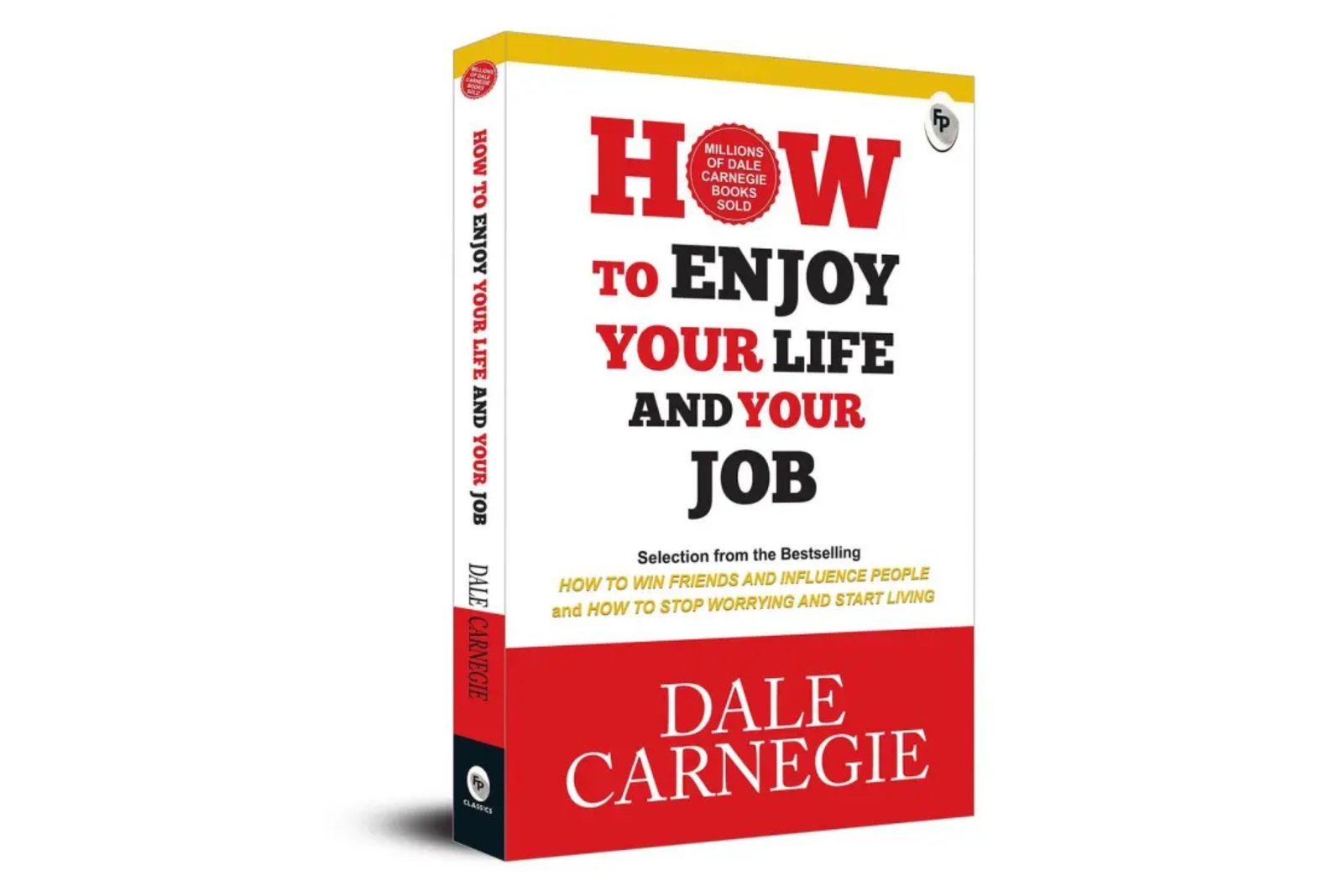How to Enjoy Your Life and Your Job Free PDF
In today’s fast-paced world, finding joy in both life and work can seem like an elusive dream. However, with the right mindset and strategies, it’s possible to enjoy every moment, both personally and professionally. This guide will provide you with practical tips and insights to help you live a more fulfilling life while excelling in your career.
Finding Balance
Achieving a balance between work and personal life is crucial for overall happiness. Explore strategies for managing your time effectively, setting boundaries, and prioritizing activities that bring you joy.
Cultivating Mindfulness
Mindfulness is the practice of being present in the moment and fully engaging with your experiences. Learn how to incorporate mindfulness into your daily routine to reduce stress, increase gratitude, and enhance your overall well-being.

Pursuing Passion Projects
Life is too short to spend it solely on tasks that don’t fulfill you. Discover the importance of pursuing passion projects outside of work and how they can reignite your creativity, motivation, and zest for life.
Nurturing Relationships
Strong, supportive relationships are essential for happiness. Explore ways to cultivate meaningful connections with friends, family, and colleagues, and discover the profound impact they can have on your overall satisfaction with life.
Embracing Self-Care
Self-care is not selfish; it’s essential for maintaining your physical, emotional, and mental health. Learn how to prioritize self-care practices that nourish your body, mind, and soul, allowing you to show up as your best self in both your personal and professional life.
Embracing Self-Care: A Comprehensive Guide to Nurturing Your Well-being
Self-care is often misunderstood as indulgence, but in reality, it’s a crucial practice for maintaining balance and overall health. By focusing on self-care, you make a conscious effort to restore your physical, emotional, and mental energy. This ultimately helps you function better in all areas of life—from personal relationships to professional productivity.
Physical Self-Care
Taking care of your body is the foundation of self-care. When you prioritize your physical health, you give yourself the energy to tackle daily challenges. Physical self-care can include:
Regular Exercise: Staying active improves your physical health and boosts your mood by releasing endorphins.
Nutritious Diet: Eating a balanced diet with fruits, vegetables, lean proteins, and whole grains fuels your body and enhances cognitive function.
Adequate Sleep: Quality sleep is crucial for your body to recover, reduce stress, and improve mental clarity.
Hydration and Hygiene: Drinking plenty of water and maintaining personal hygiene are simple yet effective ways to care for your body.
Emotional Self-Care
Emotional self-care means acknowledging and understanding your feelings. It’s about creating space to process emotions and release any built-up tension. This might involve:
Setting Boundaries: Learn to say no when necessary to protect your energy and avoid burnout.
Practicing Mindfulness: Mindfulness techniques, such as meditation or deep breathing, can help you stay grounded and manage stress.
Journaling: Writing down your thoughts and feelings helps you reflect and process emotions.
Connecting with Loved Ones: Emotional self-care includes nurturing relationships that support your well-being. Spending time with friends and family can offer a sense of belonging and happiness.
Mental Self-Care
Mental self-care focuses on activities that stimulate your mind and foster a positive mental outlook. Keeping your mind sharp and reducing mental clutter allows you to approach challenges with clarity. Strategies include:
Learning New Skills: Engaging in hobbies or learning new things stimulates brain activity and keeps your mind agile.
Limiting Screen Time: Reducing time spent on social media or in front of screens can prevent overstimulation and mental fatigue.
Reading: Engaging with books, articles, or podcasts keeps your mind active and exposes you to new perspectives.
Therapy or Counseling: Speaking with a therapist can help you navigate mental challenges and improve your emotional well-being.
Spiritual Self-Care
Whether through religion or personal belief systems, spiritual self-care involves connecting with something bigger than yourself. It’s a way to find meaning and peace in life. Spiritual practices may include:
Meditation or Prayer: A daily practice of mindfulness or prayer helps you connect with your inner self and the universe.
Time in Nature: Spending time outdoors in natural surroundings can foster a sense of tranquility and connection to the world.
Gratitude Practice: Cultivating gratitude by regularly acknowledging what you’re thankful for can boost your sense of fulfillment and happiness.
Self-Reflection: Taking time to reflect on your values, goals, and purpose in life fosters personal growth and alignment.
Professional Self-Care
Self-care extends into the professional realm as well. Taking steps to maintain a healthy work-life balance is crucial for avoiding burnout. Professional self-care might involve:
Setting Boundaries at Work: Establish clear boundaries between work and personal time to protect your mental well-being.
Taking Breaks: Regular breaks during the day help reset your focus and reduce stress.
Workplace Support: Building supportive relationships with colleagues and seeking feedback can enhance job satisfaction and reduce work-related stress.
Continuing Education: Engaging in professional development allows you to grow and stay motivated in your career.
Self-Care as an Ongoing Practice
Self-care is not a one-time act, but an ongoing commitment to your well-being. The key is to regularly check in with yourself, recognize what you need, and prioritize those needs without guilt. It’s about creating routines and habits that consistently nurture your body, mind, and spirit.
Benefits of Self-Care
Improved Health: Regular self-care leads to better physical health, reduced risk of illness, and increased longevity.
Enhanced Mental Clarity: When your mind is well-cared for, you can think more clearly and make better decisions.
Increased Productivity: By taking care of yourself, you’re better equipped to handle tasks and responsibilities in your personal and professional life.
Better Relationships: When you feel balanced and healthy, you’re more present in your relationships and able to give more to others.
Emotional Resilience: Self-care helps you build emotional strength, making it easier to navigate stress and life’s challenges.
Self-Care is Not Selfish
One of the most important aspects of self-care is understanding that it is not selfish. Caring for yourself allows you to give more to others. When you take the time to rejuvenate, you can show up as your best self in both your personal and professional life. It’s about finding balance and ensuring that you’re not neglecting your own needs in the pursuit of other responsibilities.
Overcoming Challenges
Life is full of challenges, but it’s how we respond to them that defines our happiness. Explore strategies for building resilience, reframing setbacks as opportunities for growth, and maintaining a positive outlook, even in the face of adversity.
By incorporating the strategies outlined in this guide into your daily life, you can cultivate a greater sense of joy, fulfillment, and satisfaction both personally and professionally. Download our free PDF guide today and start living the life you’ve always dreamed of.

Fun Enjoy Life Quotes
Fun Enjoy Life Quotes to the fullest, and what better way to find inspiration than through uplifting quotes? Here are a few favorites to brighten your day:
“The purpose of our lives is to be happy.” – Dalai Lama
“Life is either a daring adventure or nothing at all.” – Helen Keller
“Happiness is not something ready-made. It comes from your own actions.” – Mahatma Gandhi
“The most important thing is to enjoy your life – to be happy – it’s all that matters.” – Audrey Hepburn
Embrace these words of wisdom and let them remind you to savor every moment and find joy in the journey of life.




